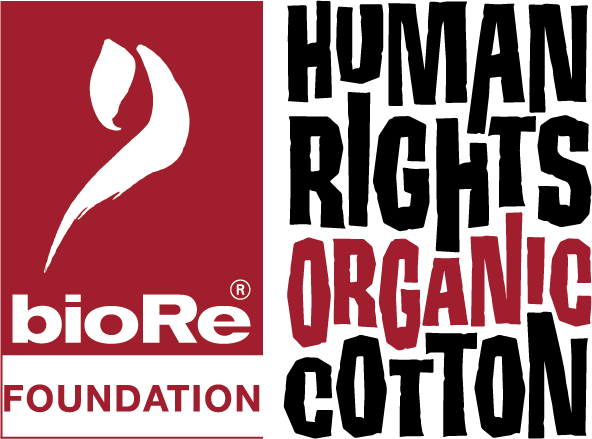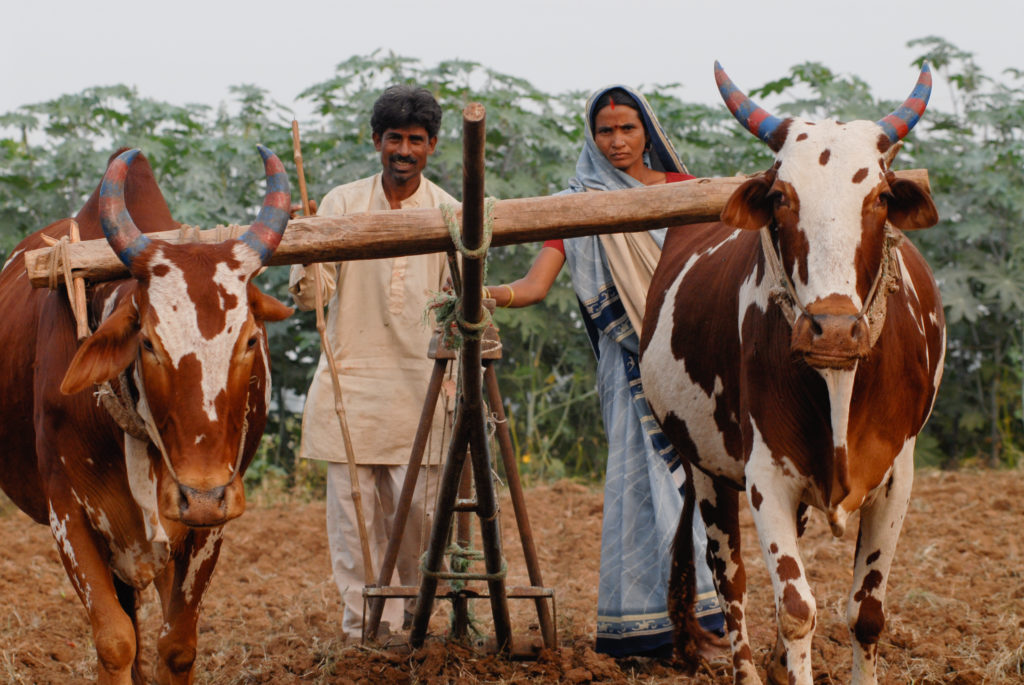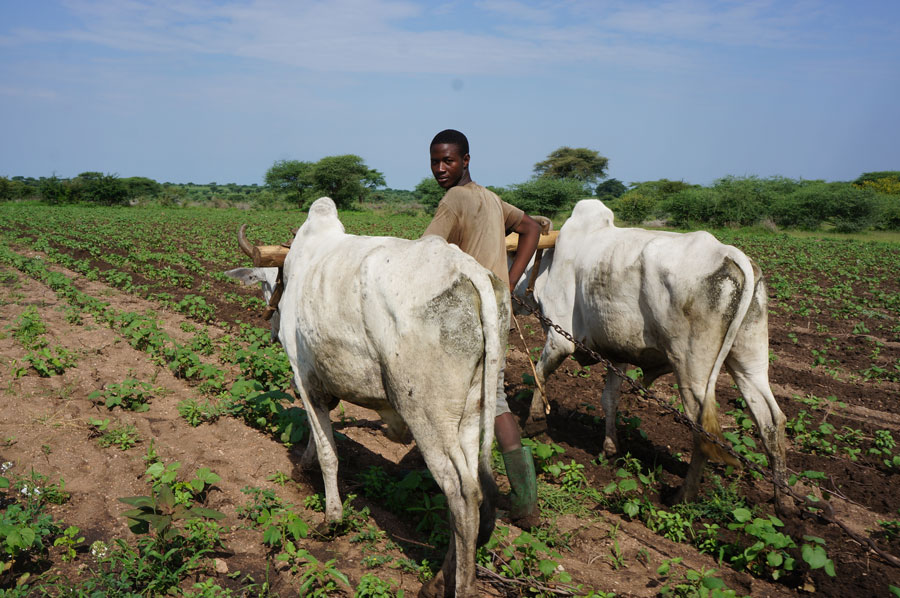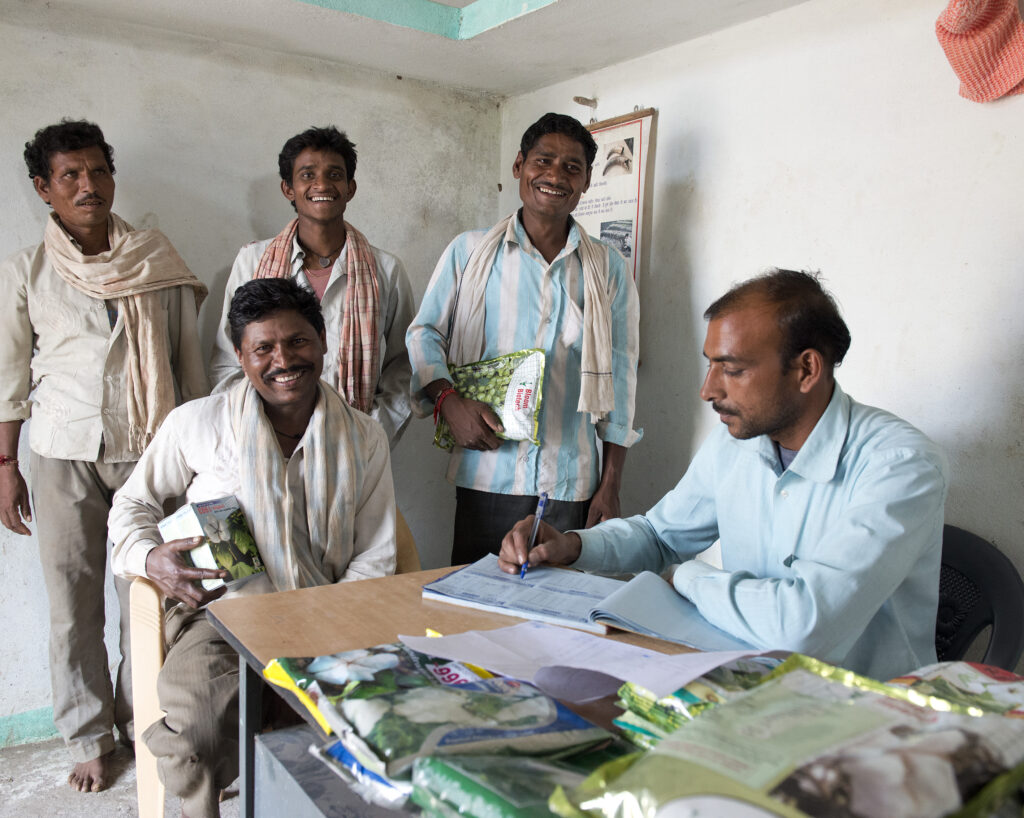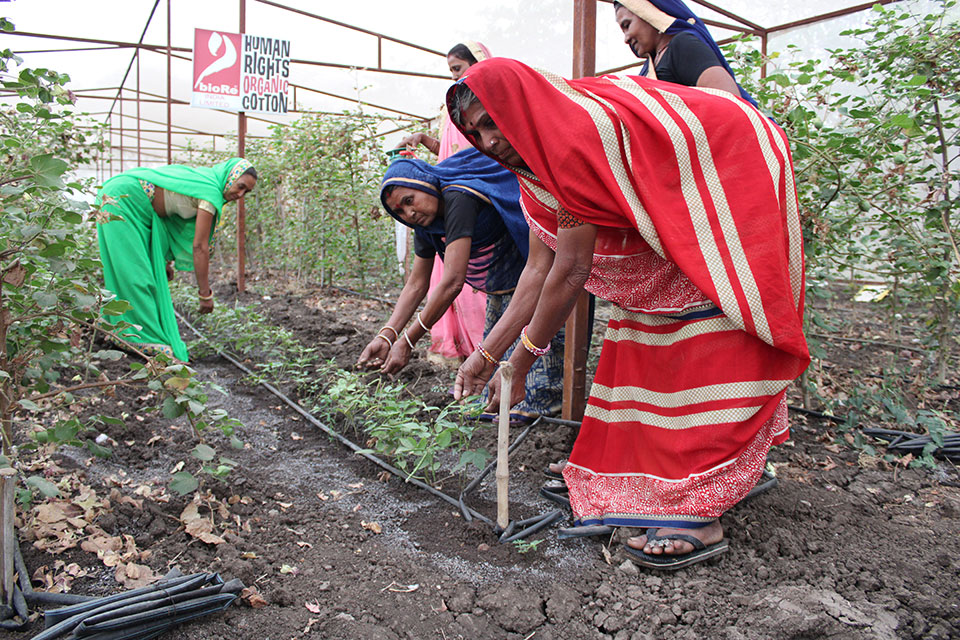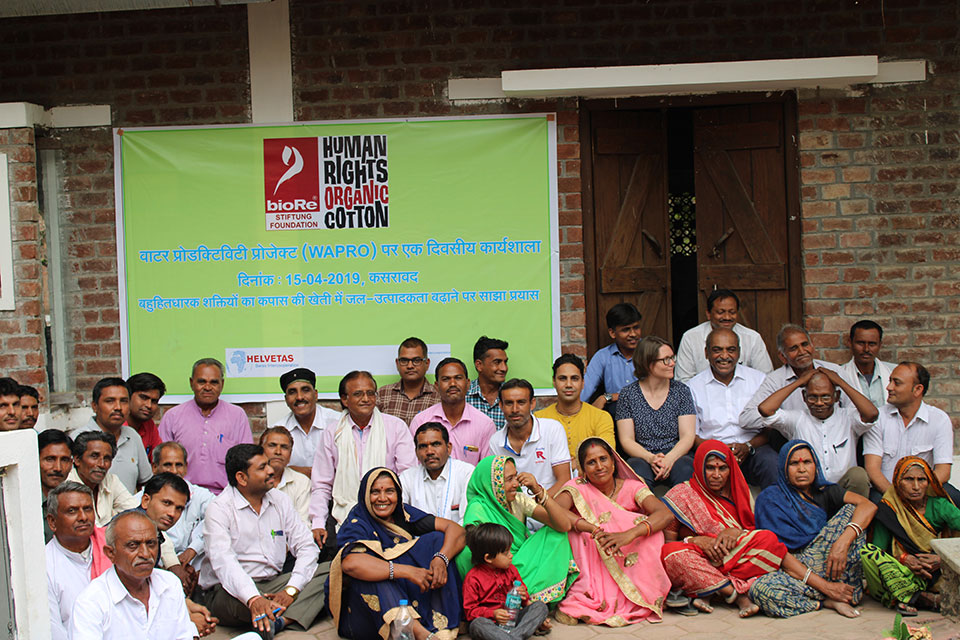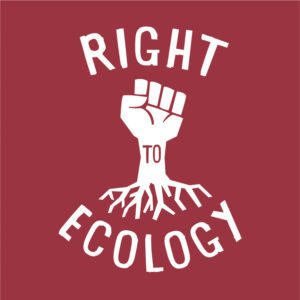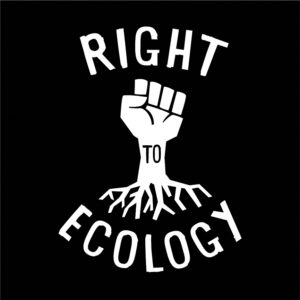Intensive use of chemical and synthetic fertilizers and toxic pesticides as well as excessive use of natural resources harm entire areas in traditional cotton-growing regions. The right to ecology requires a healthy environment for humans and careful management of soil, water resources, plants and animals. A healthy social organism can grow in a healthy environment only.
Organic production
Background: The use of chemicals in conventional cotton farming, in many cases combined with large surfaces of monoculture, destroys soil quality and harms the environment and human health. We urgently need fundamental change in agricultural production. By means of organic farming of cotton, we have performed successful environmentally friendly agriculture for 30 years, and this without use of expensive agrochemicals or genetic engineering.
Project objective: The bioRe® Foundation promotes smallholders in India and Tanzania in organic farming of cotton and other crops, and supports them in converting to organic farming. The holistic approach of organic production is based on improving soil fertility, biodiversity, crop rotation, GMO-free seeds and natural pest control. Smallholders in India and Tanzania annually produce some 2,500 tonnes of ginned organic cotton and other crops from crop rotation.
Start: bioRe® farmers in India and Tanzania have successfully grown organic cotton since 1991 and 1994 respectively.
Currently, bioRe® is co-operating with approximately 4,900 smallholder families.
Case report on Increased Productivity in Organic and Smallholder Farming / 2020
Research report on The Impact of Organic Cotton Farming on the Livelihoods of Smallholders / 2005
Donating 50.- CHF annually,
you will support agricultural training for three farmers
Research
The bioRe® Foundation also supports research projects such as evaluation of cotton seeds, participatory research in co-operation with farmers, and a long-term comparison of four different local farming systems.
Research for organic cotton seeds
Research for organic cotton seeds
Background: More than 95% of conventional cotton in India is genetically modified. For organic farmers, there is hardly any access to non-GMO seeds suitable for their activity. The hybrid seeds available mean that farmers have to purchase new seeds every year and are exposed to developments determined by seeds suppliers.
Project objective: High-quality non-GMO seed adjusted to organic conditions is essential for organic farming. The bioRe® Foundation has been promoting research for organic cotton seed in India since 2010. The seed is to both produce rich yield on various types of soil and be suitable for industrial processing. Every year, more than 70 potential types of seed are evaluated in field trials and assessed in an exchange with farmers.
Start: 2010/11
Milestone: In 2018, the government of India approved six types of cotton seed from bioRe®’s seed research, enabling bioRe® farmers to use seed from their own production for the first time.
Long-term comparison of systems
Long-term comparison of systems
Background: Currently, there are hardly any long-term studies comparing the systems of organic and conventional production of cotton. There is a shortage of proven grounds to decide in agricultural politics and among farmers which is the most sustainable farming system to be applied.
Project objective: We conduct fundamental research for the best farming methods in the regions of India and Tanzania that grow organic cotton. In a large-scale comparison of systems in India in co-operation with FiBL, the Swiss Research Institute of Organic Agriculture, we investigate the potential of the local cotton-farming systems, i.e. biodynamic, organic, conventional and use of GMOs. In Tanzania, the Sokoine University of Agriculture has been comparing conventional and organic farming for two years.
Start:
- long-term comparison of systems in India in co-operation with FiBL in 2007
- study in Tanzania in co-operation with Sokoine University of Agriculture in 2018
Study – Synthesis of twelve years of SysCom / 2021
(2007-2019)
Study -Yield and Profitability of Cotton Grown Under Smallholder Organic and Conventional Cotton Farming Systems in Meatu District, Tanzania.
Study -long-term comparison of systems / 2013
Data from the conversion phase (2007-2010)
Further publications from the long-term comparison of systems in India in co-operation with FiBL
Agricultural training for farmers
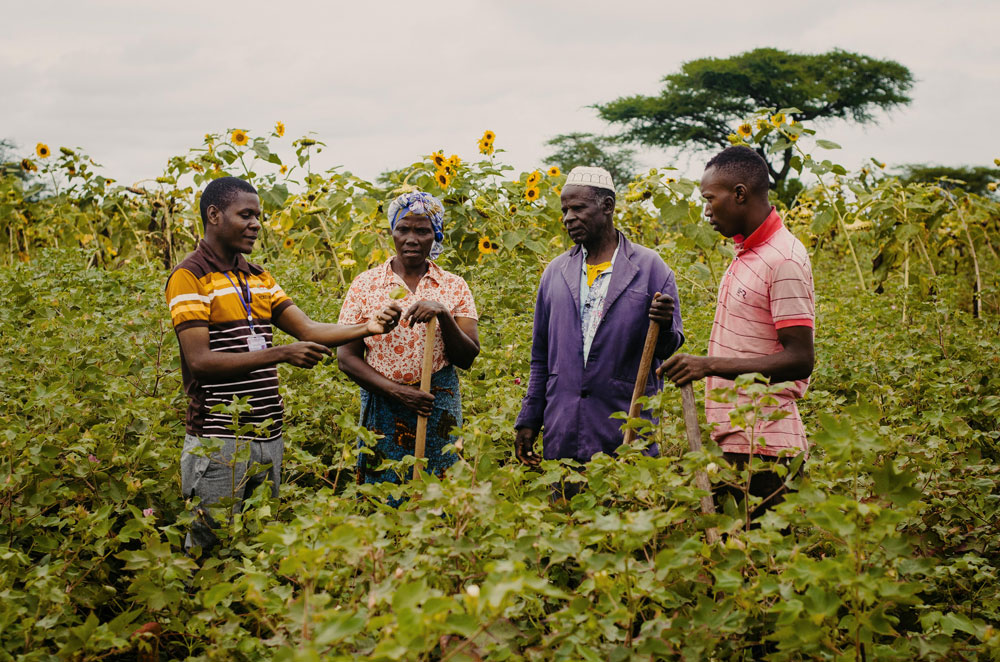
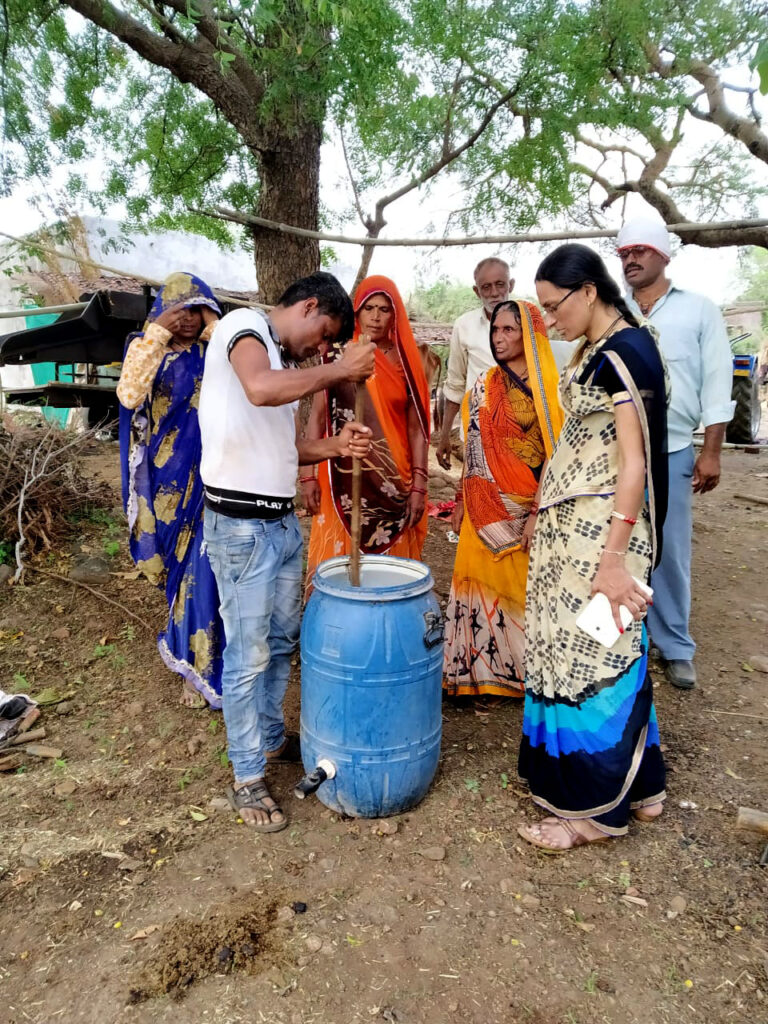
Background: In order to get organic farming established, it is essential to convey knowledge and to provide examples of successful practical use in the fields. Particularly when converting to organic farming, farmers need alternatives of their own to harmful chemical and synthetic fertilizers and the highly toxic pesticides available in the agricultural market.
Project objective: Practical courses on the latest methods of organic and biodynamic farming take place either in the farmers’ fields or at the bioRe® Training Centre. Organic farmers have exchanges with extension workers on the most suitable farming methods. The individual steps of seasonal activity are presented in the demonstration fields. Training includes soil preparation, choice of seed, timing of sowing, crop rotation and field planning, pest control and harvesting. As women farmers often perform the lion’s share of work in the fields, training is focused on them specifically. Women farmers regularly meet in groups to apply the knowledge directly in their fields.
Start: continuous training for new and experienced women farmers
Donating 50.- CHF annually,
you will support agricultural training for three farmers
Training for organic pest control
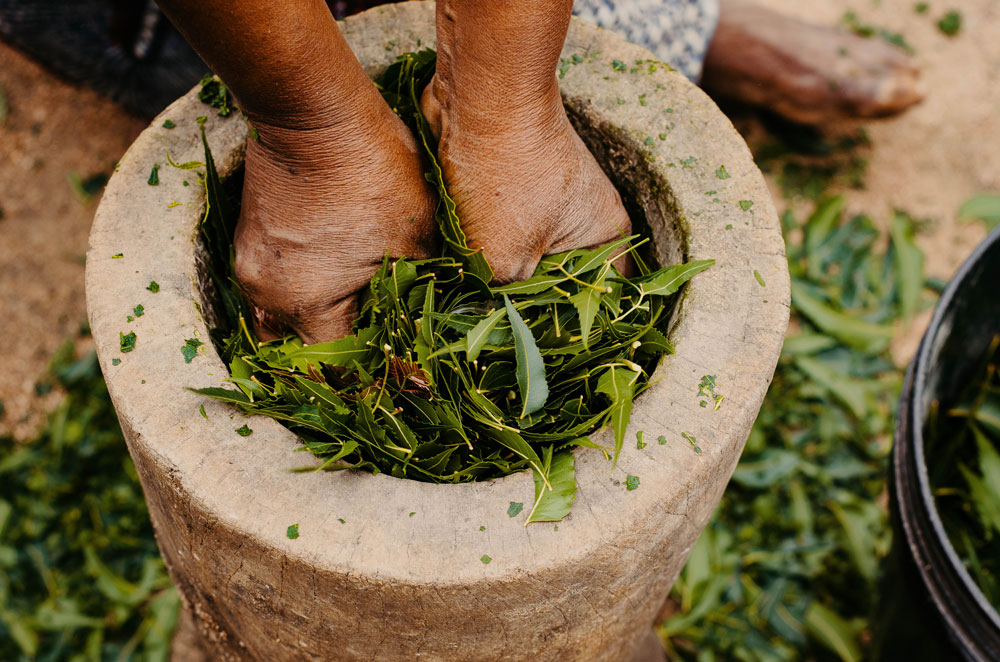
Training for organic pest control
Background: 16% of pesticides used around the world are applied in cotton fields although the latter account for no more than 2.4% of the global agricultural surface area. In India, it is estimated that over 50% of pesticides are used in cotton fields, logically with a proportionate extent of damage to the environment and health risks for farming communities!
Project objective: Agricultural training is focused on preventive measures such as crop rotation and biodiversity, catch cropping and natural pest control. Organic farmers keep a close eye on their crops and try to fight any signs of pests early on, applying organic preparations. TopTen, an effective organic pesticide, is a blend of ten locally available leaves. To make sure appropriate quantities are available when needed, farmers’ groups take care of making TopTen for all of them.
Donating 100.- CHF annually,
you will give three farmers a chance to receive training in organic pest control
Practical training for sustainable use of soil
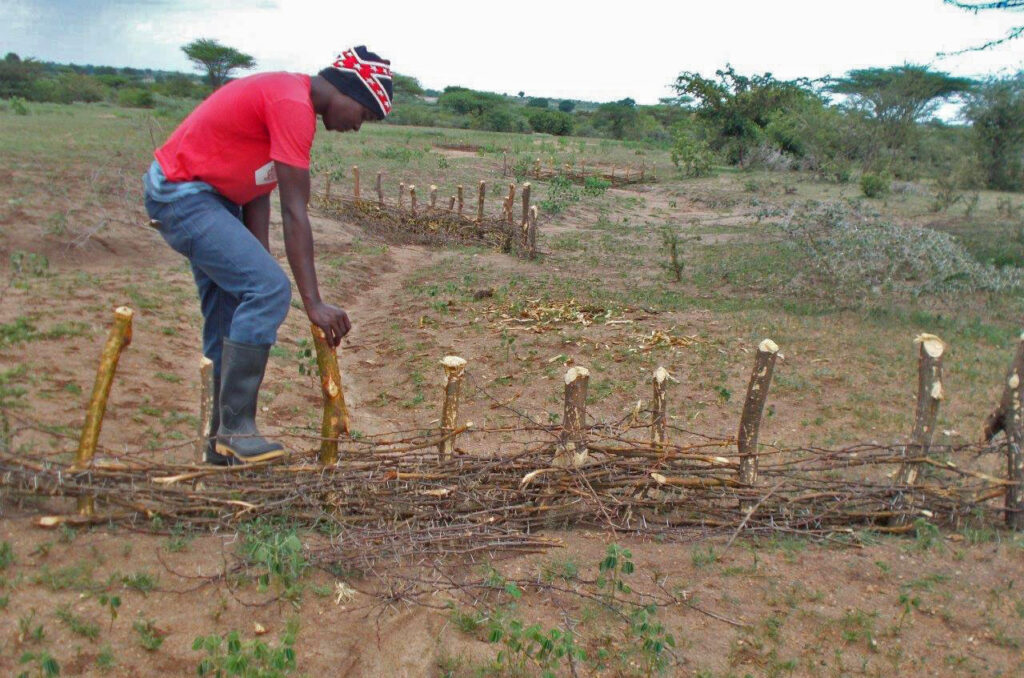
Background: In Tanzania, it is particularly challenging to protect soil against erosion. The tradition is to keep large herds of cows and goats. At the same time, deforestation continues to be driven by the increasing population density, making firewood ever scarcer. In combination, these two factors cause a risk of erosion across large surface areas. The loss of humus demands a change in agriculture, animal husbandry and use of wood.
Project objective: Organic farming builds humus for sustainable agriculture and increases soil fertility. 500 organic farmers annually receive training on specific methods and apply measures to stop erosion and promote humus formation. They have regular exchanges with experts on methods of careful ploughing and soil preparation.
Donating 100.- CHF annually,
you will give three farmers a chance to receive training in erosion control and methods of careful ploughing

Water use and water productivity in India
Water use and water productivity in India
Background: Water is a valuable good getting ever scarcer. Agriculture accounts for the largest amount of water consumption. The groundwater level is sinking, and massive use of chemical and synthetic fertilizers and toxic pesticides in conventional farming reinforces the dramatic consequences for humans and the environment.
Project objective: A lot of water is required for cotton, particularly in its first phase of growth. Within the scope of the WAPRO project, we co-operate with international partners in an effort to raise water productivity. Concrete actions include identifying available water sources in villages, training on water-friendly technologies for 1,000 women farmers, organic cultivation of cotton as well as breeding and multiplying drought-resistant types of organic cotton.
Start: 2018
Project partners: Helvetas, DEZA
bioRe® India is one of WAPRO’s eleven sub-projects
2021: Success report from the WAPRO sub-project in India after completion of the 2nd year
